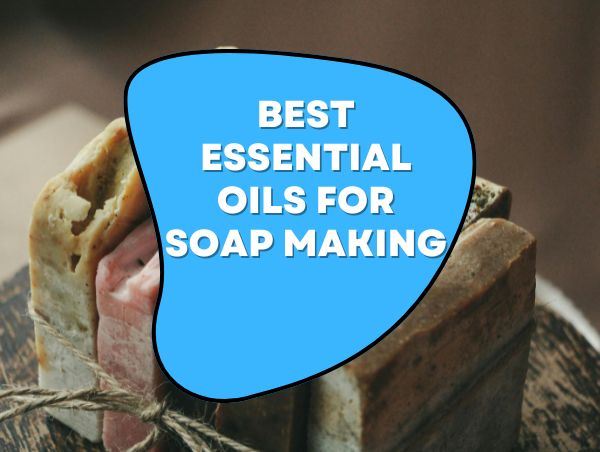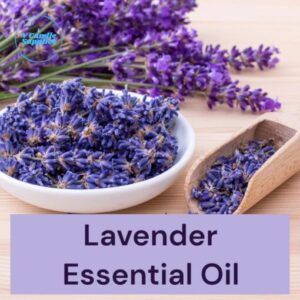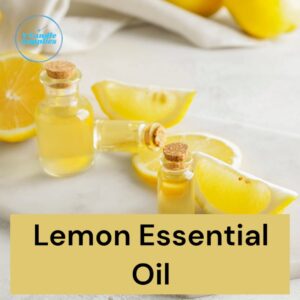Offer - Use Code "love40" to get 40% OFF on Candles. Use Code - "EO10" to get 10% OFF on Essential Oils. COD available for orders below 1500. Shipping Charges will be added at the end while placing the order. Happy Candle 🕯️ Making.
Best Essential Oils for Soap Making

So, you’ve decided to try soapmaking, welcome to the wonderfully fragrant world of essential oils! Whether you’re crafting bars for personal use, gifts, or even a business, essential oils can transform a basic soap into something luxurious. But with so many options, choosing the best essential oils for soap-making can feel a little overwhelming.
Some oils smell amazing but fade too quickly, while others offer therapeutic benefits but clash with other scents. And then there’s the science part, some essential oils behave differently when mixed with lye, changing how your soap turns out. Yep, it’s more than just picking your favourite scent!
To help you out, we’ve rounded up the ten best essential oils for soap making. These long-lasting oils blend beautifully with other scents and provide skin-loving benefits. Plus, we’ll sprinkle in some tips on how to use them effectively. Let’s dive in!
Top Ten Essential Oils for Soap Making
Lavender Essential Oil
Lavender essential oil is the ultimate go-to in soapmaking. It has a soft, floral, slightly herbal scent that most people love. It’s calming, versatile, and pairs well with almost any other oil.
Why It’s Great for Soapmaking:
- It has a soothing and relaxing aroma.
- Helps with minor skin irritations.
- Holds its scent well in soap.
Best Pairings: Rosemary, peppermint, tea tree, lemon.
Usage Tip: Use up to 3% of your soap’s total weight for a balanced fragrance.
Lemon Essential Oil
Lemon essential oil is perfect if you love a bright and zesty scent. It’s refreshing and uplifting, making any soap smell clean and fresh. However, it can fade quickly, so blending it with other oils helps it last longer.
Why It’s Great for Soapmaking:
- It provides an energising and refreshing scent.
- It has natural antibacterial properties.
- It gives a “clean” feel to any soap blend.
Best Pairings: Lavender, rosemary, tea tree, eucalyptus.
Usage Tip: Use up to 5%, but always mix with longer-lasting oils to help anchor the scent.
Tea Tree Essential Oil
Tea tree essential oil is like the Swiss Army knife of essential oils, it does it all! It has a strong, medicinal scent and is fantastic for the skin, especially if you have acne or irritation.
Why It’s Great for Soapmaking:
- Helps with oily or acne-prone skin.
- Provides natural antibacterial and antifungal benefits.
- Works well in herbal or medicinal soap blends.
Best Pairings: Lavender, eucalyptus, peppermint, lemon.
Usage Tip: Since it has a strong scent, use no more than 2.5% of your total soap weight.
Peppermint Essential Oil
Want to add a refreshing, cooling effect to your soap? Peppermint essential oil is the way to go. It gives a slight tingling sensation on the skin, making it a great choice for summer soaps.
Why It’s Great for Soapmaking:
- It has a crisp, minty scent that’s invigorating.
- Offers a cooling effect on the skin.
- Great for morning shower soaps.
Best Pairings: Lavender, rosemary, eucalyptus, tea tree.
Usage Tip: No more than 3%, too much can overwhelm the skin.
Rosemary Essential Oil
Rosemary essential oil has a clean, herbal scent that smells fresh and natural. It’s often used in herbal and spa-inspired soap blends.
Why It’s Great for Soapmaking:
- It has antibacterial and anti-inflammatory properties.
- It adds an invigorating herbal aroma.
- It blends well with floral and citrus scents.
Best Pairings: Lavender, lemon, peppermint, eucalyptus.
Usage Tip: Stick to around 4% of your total soap weight for a balanced scent.
Cedarwood Essential Oil
If you love earthy, warm scents, cedarwood essential oil is a must-try. It has a rich, grounding aroma often used in men’s soaps, but it also works well in unisex blends.
Why It’s Great for Soapmaking:
- It provides a grounding, masculine aroma.
- Helps with skin irritation and acne.
- It works well as a base note to anchor other scents.
Best Pairings: Sandalwood, patchouli, lavender, citrus oils.
Usage Tip: Use up to 3%, a little goes a long way!
Sweet Orange Essential Oil
The sweet orange essential oil has a bright, juicy aroma that makes any soap smell happy and refreshing. However, like lemon oil, it fades faster and is best blended with deeper notes.
Why It’s Great for Soapmaking:
- Adds a cheerful, citrusy scent
- Has antibacterial properties
- Perfect for morning shower soaps
Best Pairings: Clove, cinnamon, lavender, cedarwood.
Usage Tip: Use up to 4%, but mix with deeper notes to keep the scent longer.
Ylang Ylang Essential Oil
Ylang Ylang essential oil is rich, floral, and a little sweet, perfect for luxurious, romantic soaps.
Why It’s Great for Soapmaking:
- It has a strong, exotic floral fragrance
- It helps relieve stress and anxiety
- It pairs beautifully with both citrus and earthy scents
Best Pairings: Sandalwood, patchouli, citrus oils.
Usage Tip: Keep it at 1.5%, it’s powerful, so a little goes a long way!
Lemongrass Essential Oil
Lemongrass oil is bright, citrusy, and has a slight grassy undertone. It smells super fresh and is excellent for summer soaps.
Why It’s Great for Soapmaking:
- It offers a crisp, citrus aroma
- It has antibacterial and antifungal properties
- It works well in herbal soaps
Best Pairings: Lavender, peppermint, eucalyptus, tea tree.
Usage Tip: Use around 1.6% for a fresh but not overpowering scent.
Patchouli Essential Oil
Patchouli oil has a strong, earthy, musky scent that lasts forever in soap. If you love deep, grounding aromas, this is a great choice.
Why It’s Great for Soapmaking:
- It has an intense, long-lasting scent
- It blends well with florals and citrus oils
- It adds a touch of nostalgia to your soap blend
Best Pairings: Rose, sandalwood, orange, lavender
Usage Tip: Use no more than 3%.
How to Choose the Best Essential Oils for Soap Making
Consider more than just the scent when picking the best essential oils for soap making. Some oils hold their fragrance better than others, while some fade quickly. Always look for high-quality, pure essential oils to get the best results.
Blending different oils can also enhance the longevity of the scent. For example, citrus oils like lemon or orange tend to fade faster, but pairing them with deep base notes like cedarwood or patchouli can help anchor the fragrance.
Experimenting with different blends is part of the fun of soapmaking! Don’t be afraid to mix and match until you find your perfect scent combination.
Wrap Up!
And there you have it, the ten best essential oils for soap making! Whether you prefer floral, citrus, herbal, or earthy scents, there’s something here for everyone. These essential oils add fragrance and bring skin benefits and therapeutic properties to your soap.
Ready to start making your scented soaps? Make sure to use high-quality essential oils to get the best results. If you’re looking for premium essential oils perfect for soapmaking, check out our essential oils because great soap starts with great ingredients!
Now, go forth and make some fantastic soap!






